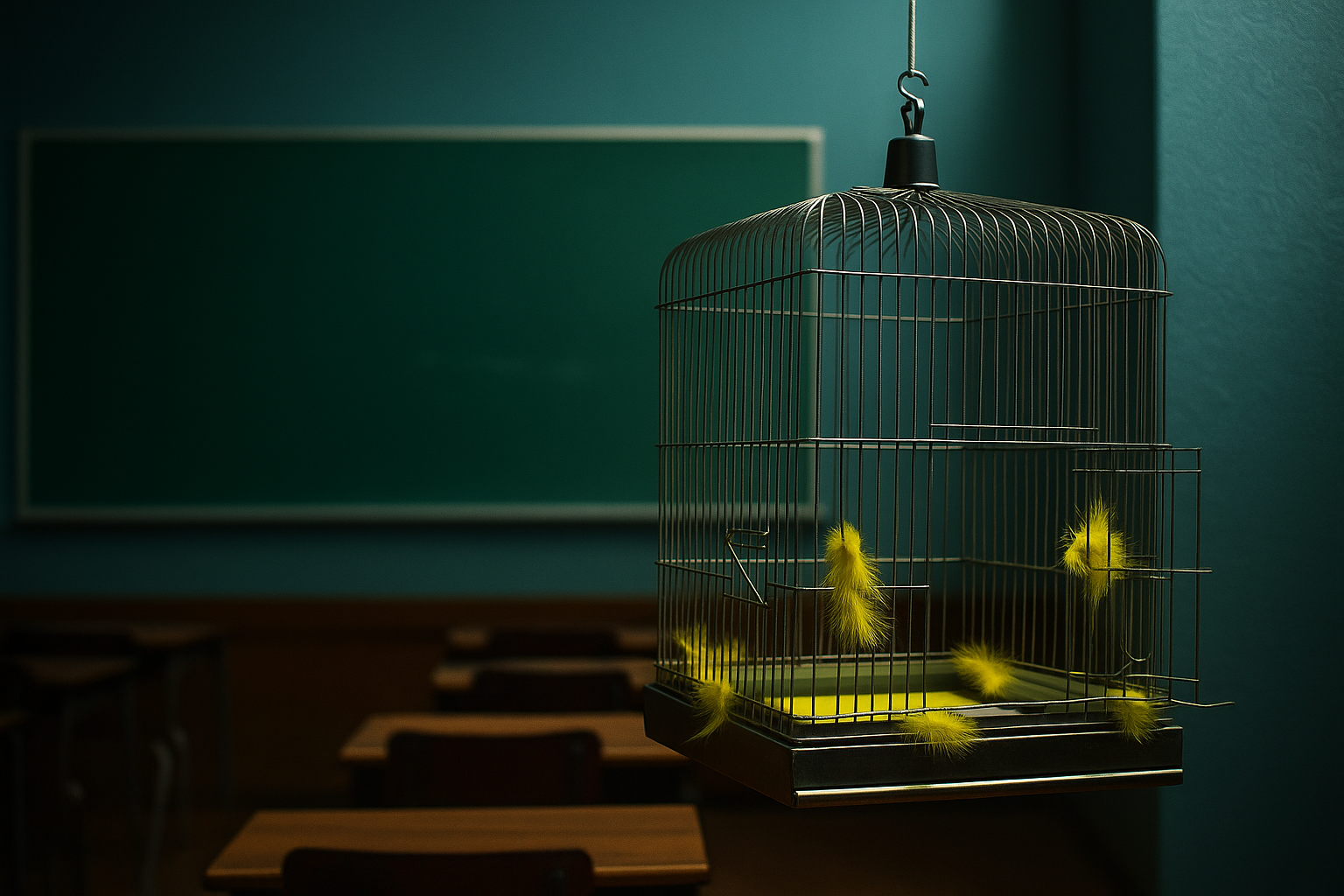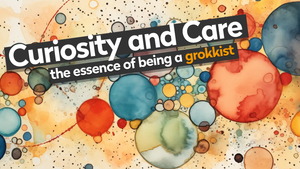The machinery of conformity finds its perfect expression in what we euphemistically call ‘education.’
I remember the first day of school vividly—the separation anxiety masked as a celebration, the photographs commemorating the beginning of my systematic processing.
The adults smiled encouragingly as they delivered me to the institution that would continue what my family had begun: the long, thorough erasure of whatever unique potential I might have possessed.
School is where we learn that time is not our own.
School is where we learn that time is not our own.
The arbitrary segmentation of days into periods announced by bells—a system borrowed from factories, not coincidentally—teaches us early that our natural rhythms are irrelevant. What matters is adherence to externally imposed schedules.
The child who cannot sit still through mathematics is not recognised as perhaps being meant for movement; instead, they are disciplined, medicated if necessary, until they learn to suppress their nature in favour of the prescribed behaviour.
We are told this is for our benefit, our future. "You'll need this someday," comes the hollow promise when we question the relevance of the information being forced into our reluctant minds.
What goes unmentioned is which futures are being prepared for—certainly not ones of our own design.
The system has little interest in producing free-thinking individuals pursuing self-determined paths. It requires workers, consumers, taxpayers—predictable units that will slot neatly into the economic machinery.
The hidden curriculum is far more important than the explicit one. Standing in lines, raising hands for permission to speak or even to relieve bodily functions, accepting authority without question—these are the true lessons being imparted. The content of instruction is secondary to this behavioural conditioning.
The hidden curriculum is far more important than the explicit one.
By the time we reach adolescence, most of us have internalised these lessons so thoroughly that we enforce them upon ourselves and each other.
I watch children in playgrounds, their movements still relatively unrestricted, their imaginations not yet fully colonised by adult expectations. There is a wildness there, an unpredictability that society finds threatening.
Education's primary function is to tame this wildness, to channel those chaotic energies into productive avenues. The truly successful products of this system don't merely comply —they come to believe in their compliance as virtue.
The sorting begins early.
Through a combination of standardised assessment and subjective teacher evaluation, children are tracked toward their predetermined societal roles. The child who excels at rote memorisation and rule-following is rewarded, marked for advancement into the professional classes.
Education's primary function is to tame the child's wildness, to channel those chaotic energies into productive avenues.
The child who resists, questions, or simply learns differently is identified as problematic, often nudged toward less prestigious, more physically demanding futures.
All of this occurs under the banner of meritocracy, as though the system were neutrally identifying natural talents rather than selectively reinforcing traits useful to the existing order.
Higher education merely continues this process with greater sophistication. The university, once imagined as a place of intellectual freedom and exploration, now functions primarily as a credentialing service for corporations and a profit centre for the financial industry through the mechanism of student debt.
Young adults mortgage their futures before they've had the opportunity to discover what those futures might hold.
The weight of this debt ensures compliance—one cannot easily pursue risky or low-paying passions when monthly loan payments loom.
Even the content of what we learn is carefully curated.
History becomes a sanitised progression of inevitable triumphs rather than a messy, contingent series of power struggles. Literature is reduced to standardised interpretations rather than explorations of alternative possibilities. Science is presented as a collection of established facts rather than a dynamic, questioning process.
The overall effect is to suggest that the world as it exists is natural, inevitable, and largely immutable.
The most insidious aspect of this educational conditioning is how it teaches us to view our own minds.
We learn to distrust our perceptions when they conflict with authority, to doubt our conclusions when they diverge from the accepted narrative. We internalize the metrics by which the system has judged us—intelligent or slow, gifted or challenged, valuable or disposable.
We come to evaluate ourselves through external standards, losing touch with our internal compass.
By the time we complete our ‘education,’ most of us have become willing participants in our own constraint. We have learned to want what the system needs us to want, to aspire to the limited options presented as success.
By the time we complete our ‘education,’ most of us have become willing participants in our own constraint.
Those who emerge relatively unscathed—who maintain some connection to their authentic desires and perspectives—are the exceptions, often labelled as misfits or troublemakers until they prove they can monetise their resistance through entrepreneurship or art.
The rest of us enter adulthood with the parameters of our lives largely predetermined, carrying the illusion of freedom while following paths that were mapped out for us long before we could read a map.
We have been taught how to function within the system, but never how to question whether the system itself might be fundamentally flawed.








Member discussion